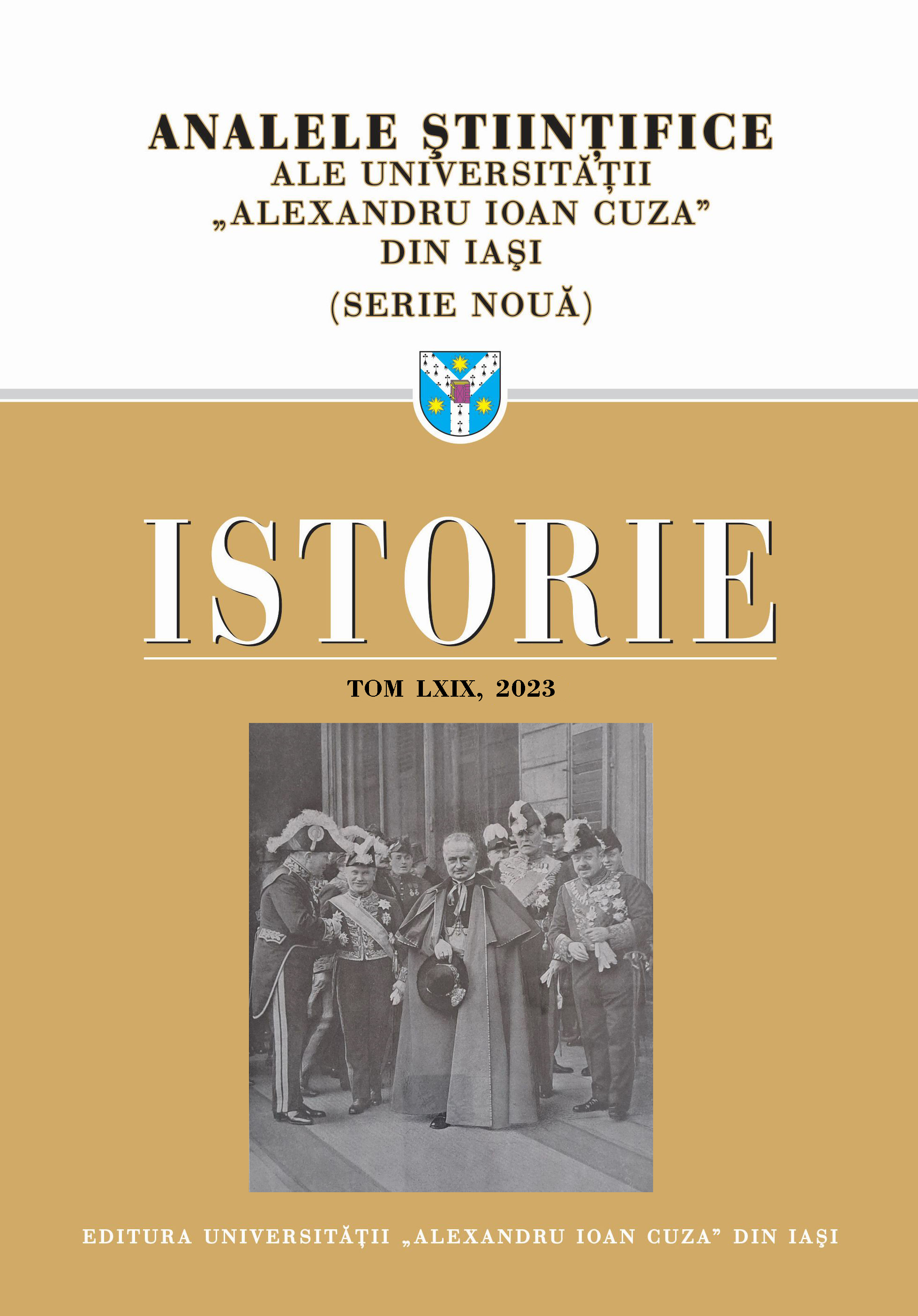Carsten Nielsen and his “controversial” agreements in Romania (1915). Files re-opened in Nazi Germany
Carsten Nielsen and his “controversial” agreements in Romania (1915). Files re-opened in Nazi Germany
Author(s): Claudiu-Lucian ToporSubject(s): History, Diplomatic history, Economic history, Political history, Pre-WW I & WW I (1900 -1919)
Published by: Editura Universităţii »Alexandru Ioan Cuza« din Iaşi
Keywords: Neutrality; First World War; grain trading; Romanian government; Nazi Germany;
Summary/Abstract: Neutrality-era Romania sometimes behaves like a transit country with the appearance of an oriental bazaar. The ideal place where all sorts of foreigners (some of dubious reputation) come to do noisy business. Eager traders who are eager to make a profit and are eager to get their hands on the most precious commodities in wartime: food and fuel. They were selling, sadly, almost everything. Corruption had touched the moral fibre of a nation in search of its identity. The insiders were well aware of the situation when they wrote: “With the refined senses that usually distinguish thieves, these individuals have noticed that we now have to work with money here and therefore they think that their time has come to fish in troubled waters”. These words belong to Austro-Hungarian plenipotentiary Ottokar Czernin. He recorded them in a report of February 1915 to the Foreign Minister. They show the involvement of Central Power diplomats in secret negotiations on trade arrangements that also concealed political desires in Romania at the time. In the economic sphere, these arrangements were aimed at obtaining the coveted export permits for grain and accepting the transit of munitions for the Ottoman Empire. There were, of course, possible political scenarios arising from the conclusion of the contracts. All were aimed at Romania’s entry into the war against Russia. The War Ministry held such discussions and even concluded a controversial trade treaty. Citing the need to ensure supplies of armaments and the import of ammunition on the old German (or Austro-Hungarian, as the case may be route, which had become inaccessible to Romania when neutrality in the war was proclaimed, the Romanian army chiefs sat down at the negotiating table. This is practically how the “grain for arms” exchange system was set up, a model of lucrative business justified by the superior interests of the state. The corrupt middlemen and officials in particular stood to gain. Many foreign traders were registered with the General Security, and at the time they were also known as grain traders. One of them, Carsten Nielsen, managed to rise to the top. He brokered the signing of a trade contract with the War Ministry which, once in force, would probably have secured Germany a benevolent neutrality from Romania. But this contract was never implemented. Carsten Nielsen suffered considerable damage. Always seeking justice in the interwar years, he created a legal dispute over financial compensation for losses resulting from the blocking of Romanian business. This legal dispute did not die out until the years of Nazi Germany. Nielsen drafted numerous petitions, some of which were even addressed to the German Foreign Ministry. The Communication analyses the contents of these documents and identifies information that sheds new light on the ‘alternatives’ to Romanian neutrality.
Journal: Analele Ştiinţifice ale Universităţii »Alexandru Ioan Cuza« din Iaşi. Istorie
- Issue Year: 2023
- Issue No: 69
- Page Range: 169-189
- Page Count: 21
- Language: English

